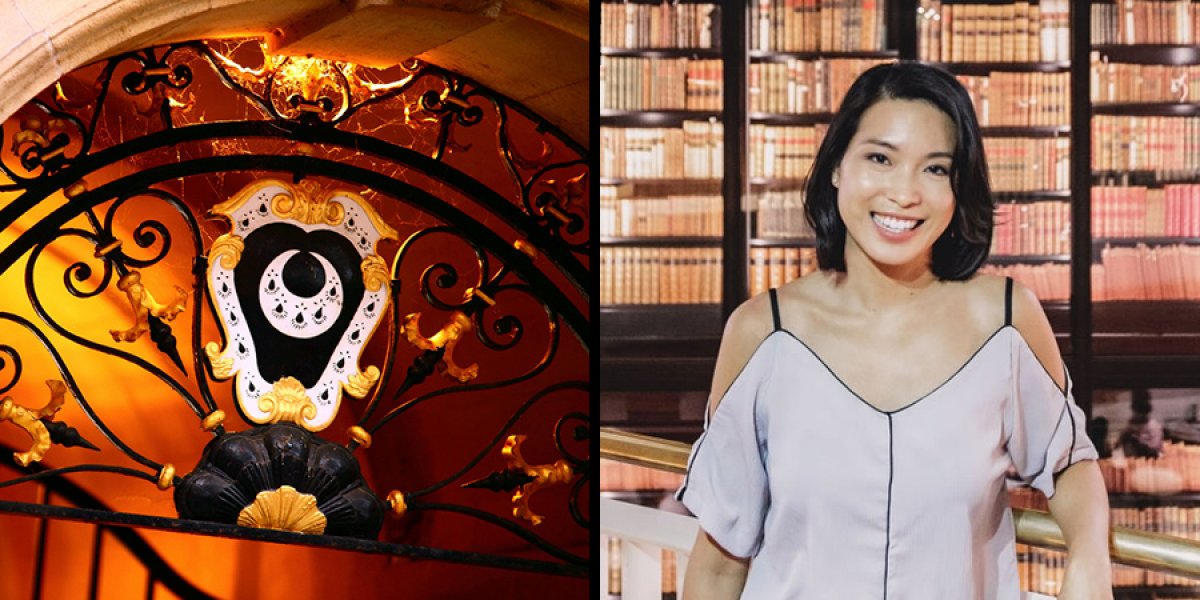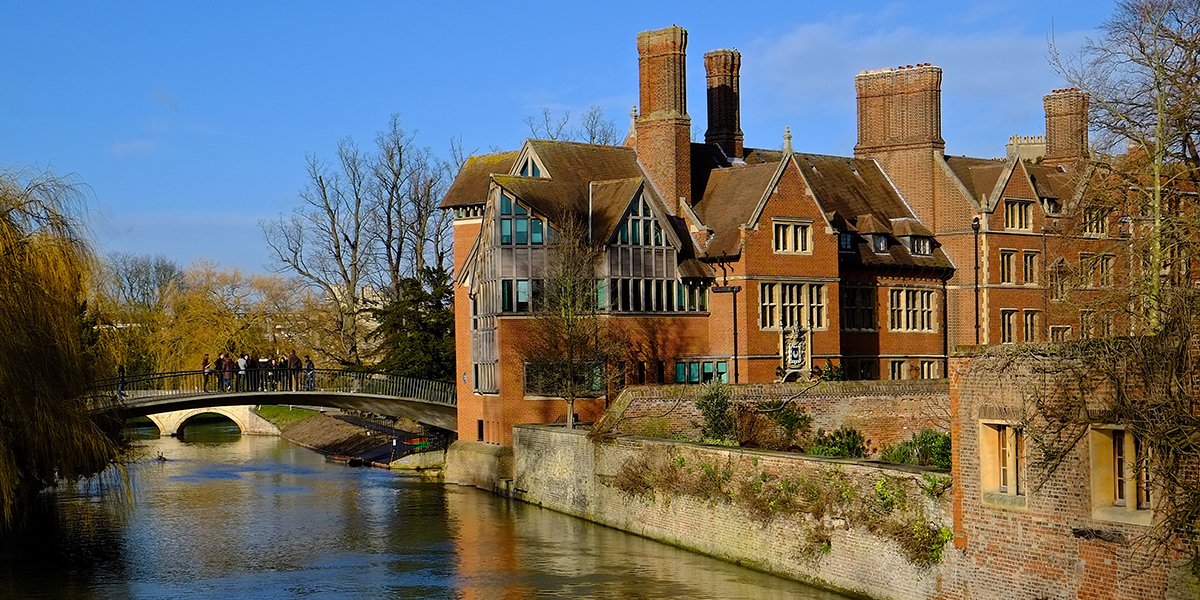Where minds meet, innovation begins - Vivian Chan
Scientist-turned-entrepreneur Vivian Chan (Trinity Hall 2007) explains the thinking behind setting up a scientific discovery search engine.
Cambridge gave me the opposite of a linear, textbook education, which was key for my journey as a young entrepreneur.
Having graduated from the University of Queensland with a Bachelor of Biotechnology in Drug Design and Development, I then spent a year in venture capital, before starting my PhD in Biochemistry at Cambridge in 2008. I immediately fell in love with the ‘organised chaos’ that, to me, characterises the Cambridge ecosystem: its unique combination of structure and flexibility was the perfect breeding ground for innovation, and only boosted my interest in entrepreneurship. In fact, I found Cambridge to be the perfect incubator for a budding entrepreneur. Having access to people with such an incredible range of expertise and specialities —all within a twenty-minute cycle ride —meant that I mingled with researchers, designers and innovators constantly, all of whom shaped my career into what it is today.
Inspiration and innovation
Where minds meet, innovation begins. This is a realisation for which I have Cambridge to thank. During my PhD, I met some enormously bright people who showed me different perspectives from which to approach my ideas. So many interesting conversations were had—everything from abstract philosophy to concrete problem-solving—and these networks of friends became networks of mentors and, later on, investors. Silicon Fen was always a predominant and inspiring presence, and at a very early stage it put the UK on the map for businesses like Raspberry Pi and ARM Holdings that became global. Cambridge gave me the opposite of a linear, textbook education, which was key for my journey as a young entrepreneur.
Work hard, play hard
My time at Cambridge challenged me to think outside the box, and not just in the context of my PhD work. Its culture of diversity was one of the highlights of my experience. From the perspective of a researcher spending all day in the lab, being able to return to a college atmosphere and socialise was so important. It’s where I mixed with people studying all kinds of things, keeping me from becoming siloed in my own field. I found the balance of work hard, play hard to be just right—it was impossible to be bored when there were formals, talks and socials going on in every part of the city. And all the history behind the town just makes it more magical; every street speaks of eight hundred years of learning and discoveries, teaching you to appreciate the past and present and to dream about the future.
Advantages of serendipity
For me, studying at Cambridge also chipped away a mentality that I’d held for much of my life: that everything has to be planned and organised years in advance. The day-to-day of a PhD doesn’t allow you to plan very far ahead, because you never know where your work will take you or what will happen in the lab that day, let alone next year. That helped me to see the advantages of serendipity, something which had led me to Cambridge in the first place, and what led me—through the Cambridge network—to do what I do now. My experience at Cambridge also taught me the importance of broadcasting your scientific research to a wider audience, which is something I prioritise at my company today. With this in mind we run an early career researcher prize awarding conference which involves giving grants to researchers across the world who communicate their work effectively. As scientists, we should only expect taxpayers to keep funding us if we are able to explain what it is that we do and why it matters to society.
Problem solving
I graduated from Cambridge in 2012, and in the same year founded the consulting company Silicon Fen Concepts alongside three fellow graduate students. Soon, I began to notice the huge difference in accessibility of the many things I had taken for granted previously. Even simply going from having wifi everywhere in the town to having to find a cafe with wifi when I wanted to work was a shock. Even more importantly, the wealth of scientific knowledge that I had been so used to accessing during my PhD was no longer available to me. I took this problem and combined it with inspiration from a postdoc in my lab (who’d suggest personalised reading lists every week to our lab group) and came up with an idea: Sparrho.com. For the past four years, my company and I have been developing Sparrho.com, which is a scientific discovery search engine, helping everyone to access the science that’s important to them.
Staying on top of science
I always knew that staying on top of science wasn’t only important for scientists, so now we have a huge range of user groups: all the way from academics, journalists, and investors deciding where to put their money, to strategic consultants, patent attorneys, and even members of the public concerned about personal health problems or controversial scientific debates. One of our users has a son with ADHD, so she uses Sparrho to keep on top of the latest research into how best to treat his condition, in order to have more informed discussions with his doctor.
Access for everyone
I’ve always said that I’m a scientist-turned-entrepreneur, and Cambridge holds a central place in that identity. The problem that I’m working on—how to democratise science so it’s accessible to everyone—isn’t an easy one to solve, and I’d love to hear from any Cambridge alumni wanting to use their backgrounds in science or science communication to make the world a more well-informed place. After all, we can only change things if we work together.
Vivian obtained a PhD in Biochemistry and attended Trinity Hall.
Contact the team at Sparrho >
If you would like to submit your own alumni story, send us an email for details of our submission guidelines. This article has been written by Vivian Chan and the opinions expressed are those of the author.

